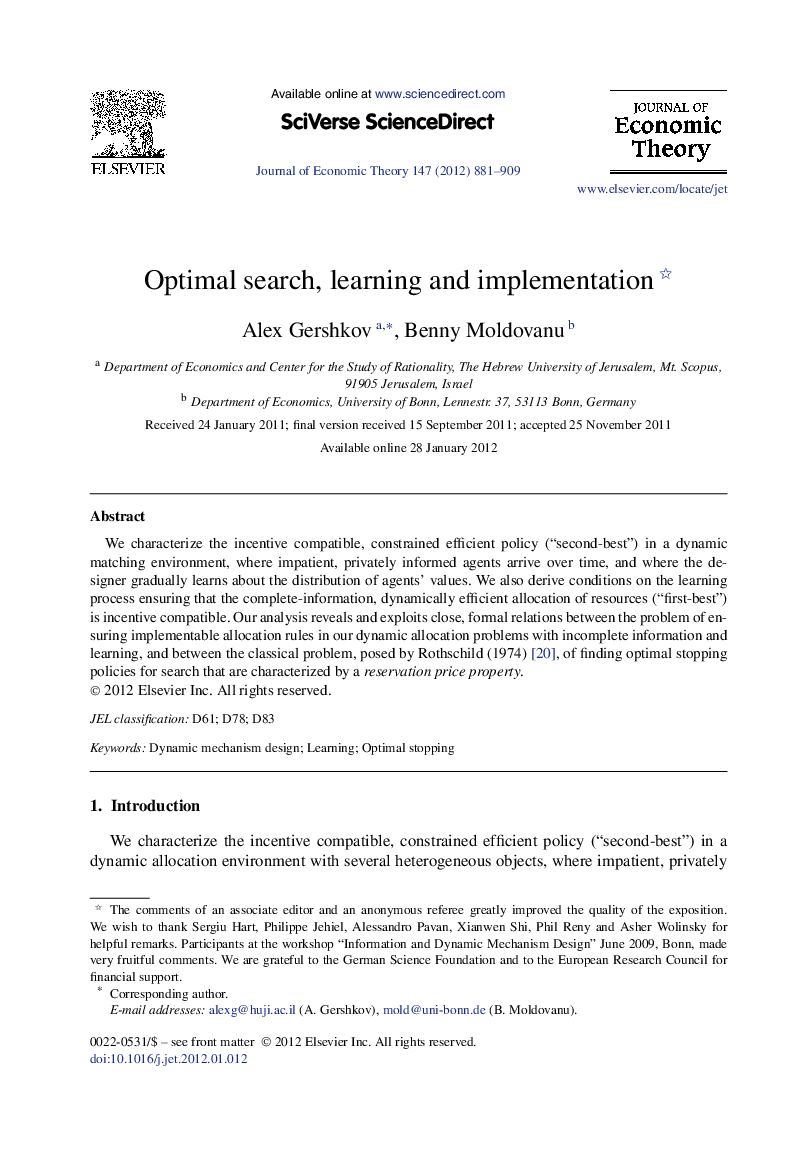| کد مقاله | کد نشریه | سال انتشار | مقاله انگلیسی | نسخه تمام متن |
|---|---|---|---|---|
| 957379 | 928524 | 2012 | 29 صفحه PDF | دانلود رایگان |

We characterize the incentive compatible, constrained efficient policy (“second-best”) in a dynamic matching environment, where impatient, privately informed agents arrive over time, and where the designer gradually learns about the distribution of agentsʼ values. We also derive conditions on the learning process ensuring that the complete-information, dynamically efficient allocation of resources (“first-best”) is incentive compatible. Our analysis reveals and exploits close, formal relations between the problem of ensuring implementable allocation rules in our dynamic allocation problems with incomplete information and learning, and between the classical problem, posed by Rothschild (1974) [20], of finding optimal stopping policies for search that are characterized by a reservation price property.
Journal: Journal of Economic Theory - Volume 147, Issue 3, May 2012, Pages 881–909